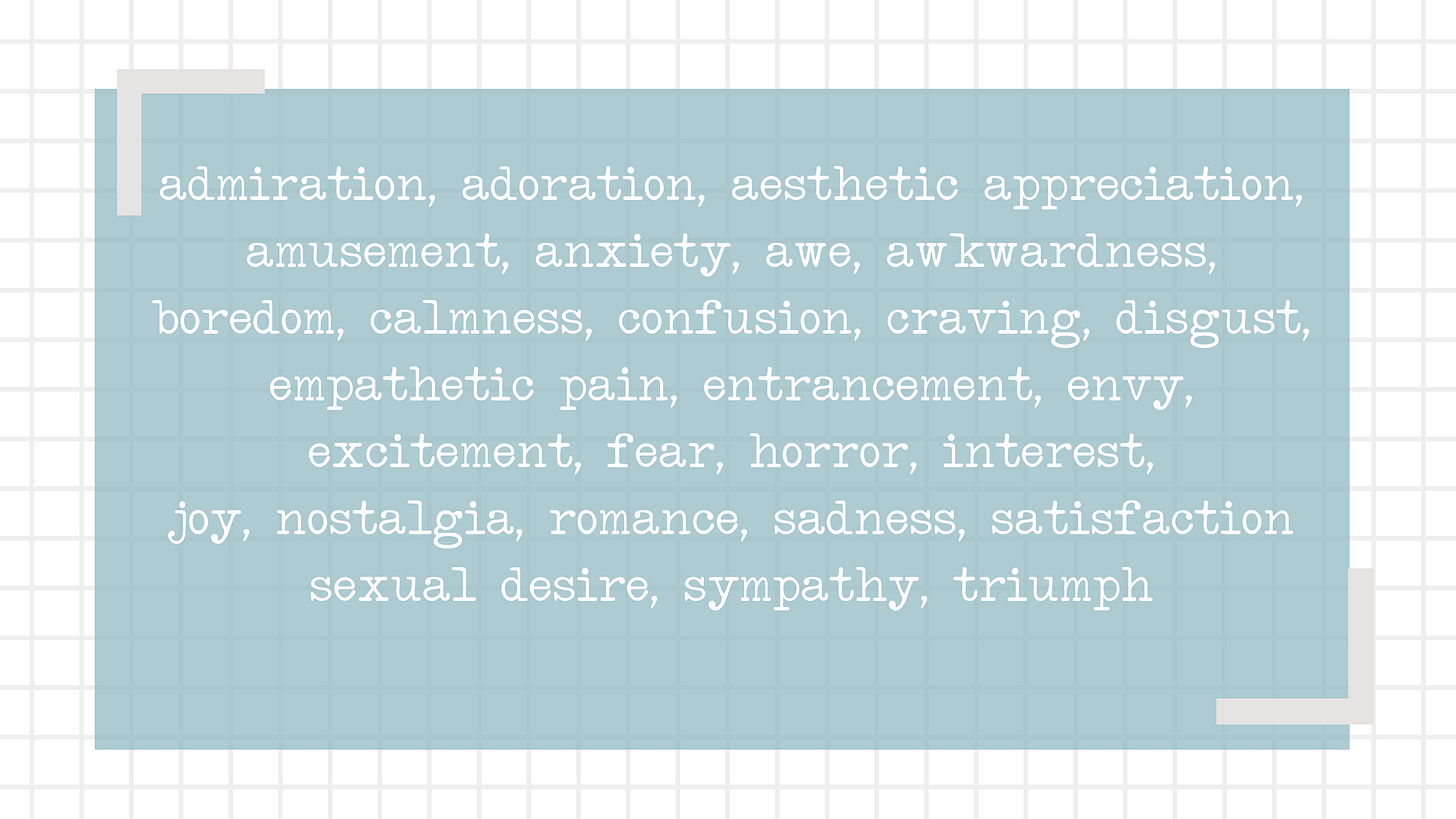When afraid, we may run, but do not always do so. When angry, we may strike, but do not always do so. And when amused, we may laugh, but do not always do so. How we regulate our emotions matters; Our well being is inextricably linked to our emotions. -James J. Gross, Stanford University, 2002
Emotions can be looked at in opposition to our thoughts. They can also be looked at in terms of our triggers like what makes us react, feel, respond, behave. Emotions can be seen as pure feelings like a poem might convey or something we learned in childhood.
The poet William Carlos Williams said, “Poetry is language charged with emotion. It's words, rhythmically organized. A poem is a complete little universe. It exists separately. Any poem that has any worth expresses the whole life of the poet. It gives a view of what the poet is.” Poems are little electrical signals of feeling, like this little one about plums he wrote.
This Is Just To Say
I have eaten the plums that were in the icebox and which you were probably saving for breakfast Forgive me they were delicious so sweet and so cold
from The Collected Poems: Volume 1, 1909-1939 by William Carlos Williams
In 2017, a study at the University of Berkley, was able to narrow and deduct emotions down into 27 categories successfully. When you put emotions in numerical form like that, it just seems easier to explore them, right? It just doesn’t feel as intimidating. If you only have 27 feelings to tap into, why not go for it, but if the number were 3 billion, we might all just run for the hills.
From admiration to triumph and from horror to disgust, we feel stuff whether we like it or not. That is why, in psychology, we talk a lot about emotional regulation. Emotional regulation is fundamental to our well-being. Emotions play an integral role in revealing our values and concern for others. Emotional regulation has been associated with high social competence and empathy. Emotions help us adapt to our environment and achieve goals. Emotional regulation is connected to our overall physical and mental health. Effective emotional regulation is an essential part of managing depression and improving our work and interpersonal relationships.1
However, the term, emotional regulation isn’t the most pleasing sounding term - at least not me. It sounds like some sort of governmental organization. One that is coming into my heart and mind to tell me how and what to feel. The idea of an emotional regulation doesn’t sound so enticing. Who wants to create regulations for our feelings? Emotional regulating ourselves reminds me of the film The Adjustment Bureau. The idea behind the George Nolfi film is that humans need a little guidance throughout life so they do not self-destruct or blow someone up, so the solution is the Adjustment Bureau. For every human, there is an Adjustment Bureau case officer overseeing their lives. However, in real life, we have to be our own emotional case officers. We make the adjustments. We figure out how not to blow ourselves up and how to reach our full potential.
According to James J. Gross, a Stanford University psychology professor and the director of the Stanford Psychophysiology Laboratory, emotional regulation is “the processes by which individuals influence which emotions they have, when they have them, and how they experience and express them.”2 According to Gross when making decisions, we generally tend not to reflect and reframe when there is danger or a high level of stress. Once, I told my friend I was OK if I saw a snake on our hike, and then we saw one, I screamed and jumped on her back. My sense of danger was very high, and my response was extremely coherent with that. When an emotion is less intense, we can reflect and reframe it more easily. However, this is when we can gravitate towards more rumination or worrying about that emotion.
Emotional regulation is something we can all do, improve on, and work on to bring joy into our life. It is not the experience of emotions that are bad or good, it is what we attribute to them and the meaning we make that can cause distress or not. Emotional regulation is about paying attention to how our emotions, thoughts, and behavior relate to one another. With all the social and technological changes in our world, we are inundated with stressors and stimuli that generate cognitive strain. Developing flexibility in our emotional reactions is more valuable than ever. The one takeaway I want you to remember is that our emotions are malleable, and how we respond is controlled by our free will - we have the ability to respond to situations thoughtfully and with intention and meaning.






